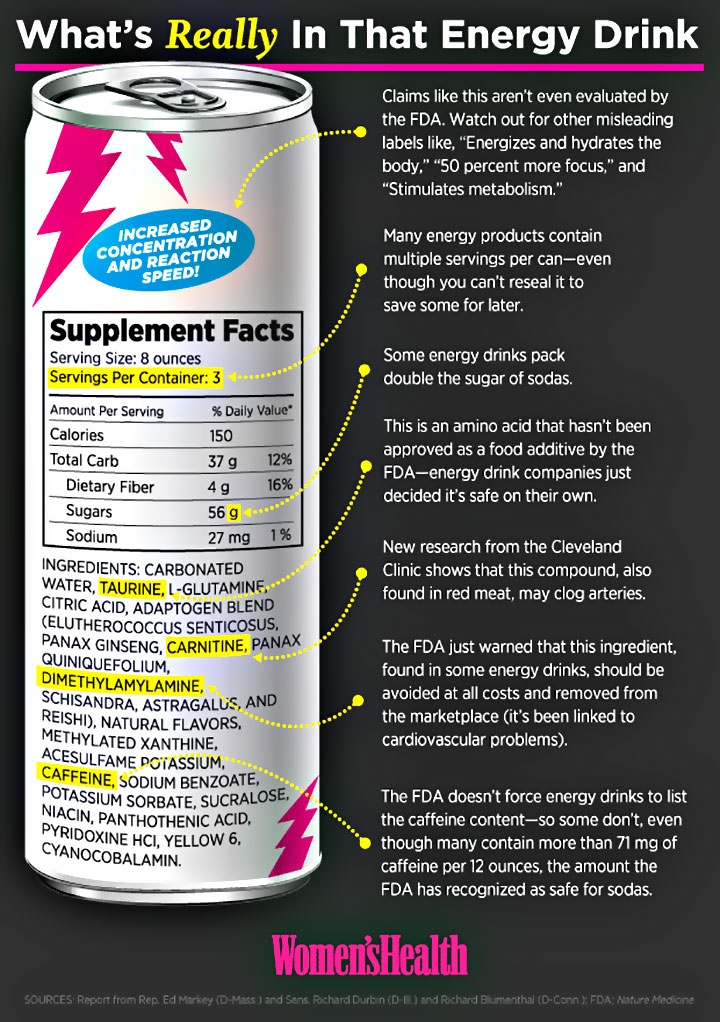According to a study on the effects of energy drinks, 32 ounces of an energy drink consumed in a short time span can elevate blood pressure and affect the rhythm of the heart by increasing the risk of electrical activity disturbances within the heart.[1]
The study participants consisted of 34 healthy individuals aged 18 to 40 years who were assigned randomly to 2 different groups. On 3 separate days, one group consumed 32 ounces of 1 of 2 energy drinks containing caffeine which are commercially available and the other group drank a placebo beverage. They were drunk no faster than 16-ounces in 30 minutes and within 60 minutes. At the beginning of the study their blood pressure was recorded and their hearts’ electrical activity was measured and again every 30 minutes for 4 hours after the energy drinks consumption.
The QT interval of individuals consuming either of the energy drinks was 6 milliseconds or 7.7 milliseconds higher at 4 hours in comparison to individuals consuming the placebo beverage. The QT interval is how long it takes the heart’s ventricles to prepare for generating another beat. A too short or a too long QT interval can result in the heart beating abnormally and a potentially life-threatening arrhythmia. An increased systolic and diastolic blood pressure of 4 to 5 mm Hg, which is statistically significant, was also experienced in those individuals consuming the energy drinks.
”]
The association between energy drink consumption and QT interval changes and blood pressure was not attributed to the intake of caffeine. There was 304 to 320 mg of caffeine/32 fluid ounces in each of the energy drinks that were tested. Doses of caffeine under 400 milligrams are not likely to induce any electrocardiographic changes. The energy drinks used in the study also contained other common ingredients which included glucuronolactone (found in connective tissues plants), the amino acid taurine, and B-vitamins. There was only carbonated water, a cherry flavoring and lime juice in the placebo beverage.
The study was designed for assessing the effects of short-term energy drink consumption and doesn’t offer insight into either the long-term effects nor the effects of long-term energy drink consumption. It’s also not uncommon for energy drink consumption to be combined with alcohol, and this study evaluated consumption of energy drinks alone. Only healthy 18 to 40 year old individuals were included in the study and other population groups could produce different outcomes.

Image Source – womenshealthmag